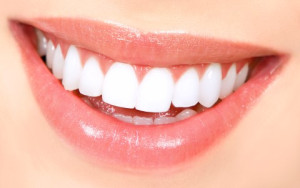Gingival/Gum Surgery in Houston, TX
 Gingival surgery, also called gum surgery, is often a crucial procedure that treats gum disease; however, it also is a procedure that improves the appearance of the mouth around the teeth and therefore the smile. Gingival surgery may be an elective procedure for appearance, but if you have gum disease it may be a necessity.
Gingival surgery, also called gum surgery, is often a crucial procedure that treats gum disease; however, it also is a procedure that improves the appearance of the mouth around the teeth and therefore the smile. Gingival surgery may be an elective procedure for appearance, but if you have gum disease it may be a necessity.
In either case, the procedure involves cleaning the mouth to become as sterile as possible. Local anesthesia, general anesthesia or IV sedation (or a combination) will be determined by your doctor depending on exactly what your treatment entails along with your medical history.
During gum surgery, tissue that is deemed discolored, extra or unsymmetrical is removed, shifted and/or gum tissue may be grafted to the gum defect. Also, the gum line can be altered using special instruments. Stitches may be necessary to close incisions.
A dressing may be required to the gums which may need to remain up to ten days; and, tooth brushing may need to be suspended for the same amount of time. Instead, antiseptic mouthwash will be provided for daily use. Gums will appear normal after healing for several weeks.
There are numerous reasons why a patient may want or need gum surgery.
One example is a failed root canal procedure. A requirement in such a circumstance may be an apicoectomy, which a type of gingival surgery performed to remove the apex (or root tip) and a filling procedure which seals the root from further infection
Your teeth are held firmly in place by very strong roots that have grown from the jawbone. The end of each root is referred to as the apex. The apex is where blood vessels and nerves enter the tooth.
Root canal treatment cleans the canal and removes infected/inflamed tissue in the root. Tooth roots are extremely complex and there are sometimes tiny branches that cannot be cleaned and/or sealed during a traditional root canal. Unfortunately, this means that infection/inflammation sometimes perseveres after root canal treatment.
If left untreated, infected roots (in addition to causing much pain) can infect and damage other area in the mouth as the infection spreads to damage other teeth as well as cause jawbone regression.
There are other reasons that may warrant the necessity or election of gum surgery.
This list includes bleeding, excessive sensitivity, gum recession, halitosis (bad breath), inflammation and improved appearance as well as certain oral pathologies and periodontal conditions.
Please do not hesitate to call with any concerns or questions; or, to make an appointment.
